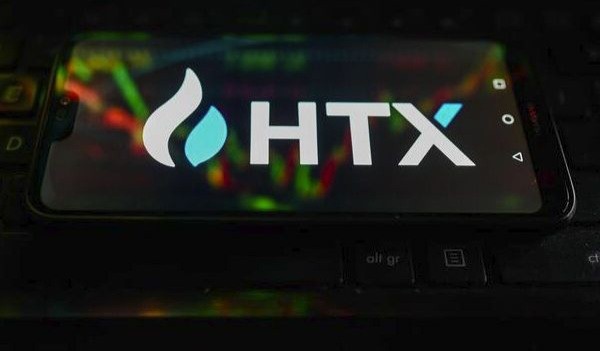时间:2024-03-02|浏览:240
与日本一样,韩国在释放企业价值方面面临着漫长的道路
(彭博社)——当全球投资者仔细审视韩国提高企业估值的计划时,他们注意到一个关键障碍——家族控制企业或财阀的普遍存在,这些企业常常被指责为导致股票估值被低估的原因。
大多数阅读来自彭博社
特朗普警告房地产市场低迷期间资产出售将造成巨大损失
厌倦了纽约通勤的银行家正在推动迷你格林威治的繁荣
埃隆·马斯克 (Elon Musk) 起诉 OpenAI 和 Altman 违反公司创立使命
NYCB 指出贷款监管方面的弱点并任命新首席执行官
乌克兰将获得捷克主导的155毫米炮弹
从三星电子公司到现代汽车公司,韩国企业集团都是由创始家族成员经营的,他们可以通过复杂的交叉持股来行使巨大的权力。
有争议的结构和排挤少数股东的倾向是韩国企业多年来估值远低于海外同行的原因之一,导致了投资者称之为“韩国折扣”的现象。
首尔官员正在从日本汲取教训,推动企业改革一直是全球股市反弹的关键驱动力之一。
然而,本周市场对韩国“企业价值提升计划”的反应冷淡,表明这些努力未能坚定地解决治理不善的问题。
此外,在对这些措施的预期推动韩国股市连续数周走高之后,投资者似乎开始认识到,任何改革和股票重新评级都需要数年时间才能取得成果,就像日本的情况一样。
Federated Hermes亚洲(日本除外)股票首席投资组合经理乔纳森·派恩斯(Jonathan Pines)表示:“监管机构必须明白,除了削弱控股股东的权力外,没有其他有效方法可以减少韩国折扣。”
“一些控股股东更愿意降低股价,以减少遗产税,并提供持续的机会,以低廉的市场价格迫使少数股东退出。”
阅读更多:韩国自愿治理改革与日本耻辱名单的对比
便宜的韩国
基准 Kospi 指数的交易价格略高于其盈利预期的 10 倍,而日本东证指数 (Topix Index) 和台湾证券交易所 (Taiex) 的比率分别接近 16 倍和 17 倍。
The Kospi has fallen 1% this week following the release of the government’s plan, halting a five-week winning streak. It has gained about 9% over the past 12 months. In the same period, Japan’s gauge has rallied more than 35% and Taiwan’s 21%.
Seoul’s valuation drive relies on voluntary efforts and lacks punitive measures, with companies encouraged to self-evaluate their improvement in areas including corporate governance and shareholder returns for tax incentives.
Some skeptics even downplay the plan as a political move ahead of the April parliament election to win retail votes, saying it may lose momentum once that’s over. Mom and pop investors, which account for more than a quarter of the country’s 52 million population, have become a key political bloc.
Faced with pushback that the value-up plan lacks teeth, authorities emphasized that they are seeking a longer-term upgrade of the market. Their determination on delivering a change in corporate behavior will be put to test in June, when the details of tax incentives and other guidelines are released.
“Whether it’s incentives or penalties, they both seem insufficient at the moment,” said James Lim, senior research analyst at Dalton Investments Inc. “Controlling shareholders control the board and the management. Are these incentives big enough to change their behavior meaningfully? It’s not compulsory so it remains weak.”
Chaebol Problem
Chaebols’ business structure has been under debate in Korea for decades. While their concentrated leadership allows speedy decision making and has proved crucial in transforming the country into industrial powerhouse, it has also been criticized for a lack of transparency and decisions that neglect shareholder interest.
In a landmark case that involved the country’s largest conglomerate, governance watchers have expressed concern that Samsung Electronics Executive Chairman Jay Y. Lee has been acquitted from charges of stock manipulation related to the merger of two Samsung affiliates.
While some Japanese companies have founding families participating in management, the practice isn’t as widespread as in Seoul, with their influence non-existent in long-standing conglomerates like Mitsubishi group and Sumitomo group.
Reforms in Japan have been years in the making, starting almost a decade ago when the Shinzo Abe government urged companies to tackle low profitability and introduced measures to hold the management accountable for boosting corporate value.
It was a slow process that finally started to pay off last year as the Tokyo Stock Exchange deployed a name-and-shame tactic. Many companies initially only did the bare minimum to comply with government requests, such as installing more outside directors on the board.
Read more: Tokyo Bourse’s ‘Name and Shame’ List Builds Pressure for Reform
日经指数和东证指数基准指数已升至数十年来的高点,历史性上涨的推动因素还包括日本央行保持宽松政策、日元走弱以及饱受通缩困扰的日本经济再次面临价格压力。
激进投资者的不断增加也给企业领导人带来了恐惧。
据彭博资讯报道,韩国的激进主义也在兴起,这可能会刺激推动更多改革,以保护少数股东的利益。
散户投资者变得更加直言不讳也可以为改革努力增添动力。
三井住友DS私募基金管理(上海)有限公司首席投资官桥诘健二表示:“我一直认为,韩国折扣背后最大的原因是治理问题。如果治理改革加速,将会有巨大的空间。”韩国股市重新评级。”

![[加密王]韩国在释放企业价值方面面临漫长的道路](/img/20240302/3665505-1.jpg)








